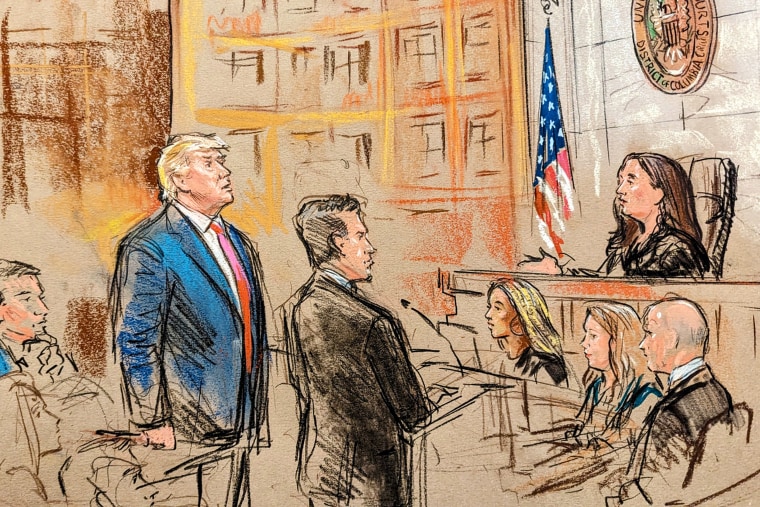The 45-page indictment returned by a federal grand jury against Donald J. Trump on Tuesday offers a blistering rebuke of a U.S. president’s desperate plot to stay in power. The full document is a good read, but America will have to wait for the trial to hear and see special counsel Jack Smith’s proof.
And what will this extraordinary trial look like?
The full document is a good read, but America will have to wait for the trial to hear and see special counsel Jack Smith’s proof.
First, we know that there will be a lot of witnesses. A review of the indictment suggests that Smith will have to call 30 to 40 witnesses to substantiate everything in the wide-ranging indictment. The indictment’s description of the “conspiracy to defraud the United States” includes tense confrontations in the Oval Office, phone calls to legislators in seven states, more than 60 lawsuits, attempts to corrupt the Department of Justice, lies to electors, and a final push by Trump on Jan. 6, 2021, to pressure his vice president not to certify Joe Biden’s victory.
Smith’s list of witnesses should read like a veritable who’s who of the Republican Party, and will likely include Mike Pence, U.S. congressmen, U.S. Department of Justice officials, White House lawyers and advisers, officials from several states, and at least some of the “fake” electors who signed election certifications even though their candidate lost the race.
Second, everything described in the indictment — everything, without exception — must be established by admissible evidence in the Washington, D.C., courtroom. Even the background information included in one of the indictment’s opening paragraphs, which describes how electoral votes are counted under federal law, will likely have to be explained to the jury by an expert witness. The cross-examination of that witness, which could be relevant to Trump’s defense, may be lengthy. (On Thursday, Trump pleaded not guilty to all charges.)
Smith and his team will endeavor to tell the story laid out in the indictment. But, after the government’s opening statement, that story has to be told through live witness testimony or reliable documents (think emails and text messages). In contrast, the House Jan. 6 committee, which had first crack at many of the witnesses, was not conducting a criminal trial and did not have to comply with the rules of evidence and criminal procedure. For purposes of those blockbuster public hearings, the committee was able to select and play relevant portions of videotaped depositions to illustrate key points. Notably, the near-total boycott of the committee by House Republicans meant that witness testimony went unchallenged.
The Constitution affords criminal prosecutors no such luxuries. Government witnesses in Trump’s criminal trials will have to testify live. They will be subject to cross-examination; this is Trump’s right under the Sixth Amendment to confront the witnesses against him. And, for reasons of efficiency, trial judges expect witnesses to testify in a single session about everything relevant to the trial. That means Smith’s witnesses may be asked to testify about a number of events that may not flow chronologically in Smith’s presentation of the case. The jury will have to sort all that out later, with the help of the government’s closing argument.
A few witnesses may be called for more limited purposes. Every piece of documentary evidence — an email, a text, a letter, a memo, an electoral certification — has to be authenticated by a live witness before it can be admitted into evidence and shown to the jury. (While Trump can stipulate to a document’s authenticity, he’ll have little incentive to do so.)
None of these evidentiary requirements will stymie the special counsel’s team, of course — rules of evidence and procedure are part and parcel of criminal trials. Trial attorneys are also prepared to expect the unexpected, such as jurors who fall ill, witnesses who fail to appear, midtrial discovery disputes, broken copy machines and courthouse power outages.
It also seems like the special counsel has pulled every lever in his control to narrow and simplify the trial — for example, by indicting only Trump and not his six alleged co-conspirators. But Jack Smith’s indictment still tells a big story, about Donald Trump’s desperate and wide-ranging attempt to overturn the results of a presidential election. With the limited time left on the clock before the 2024 presidential election, Smith’s biggest challenge will be telling that story to a jury as quickly as he can.

